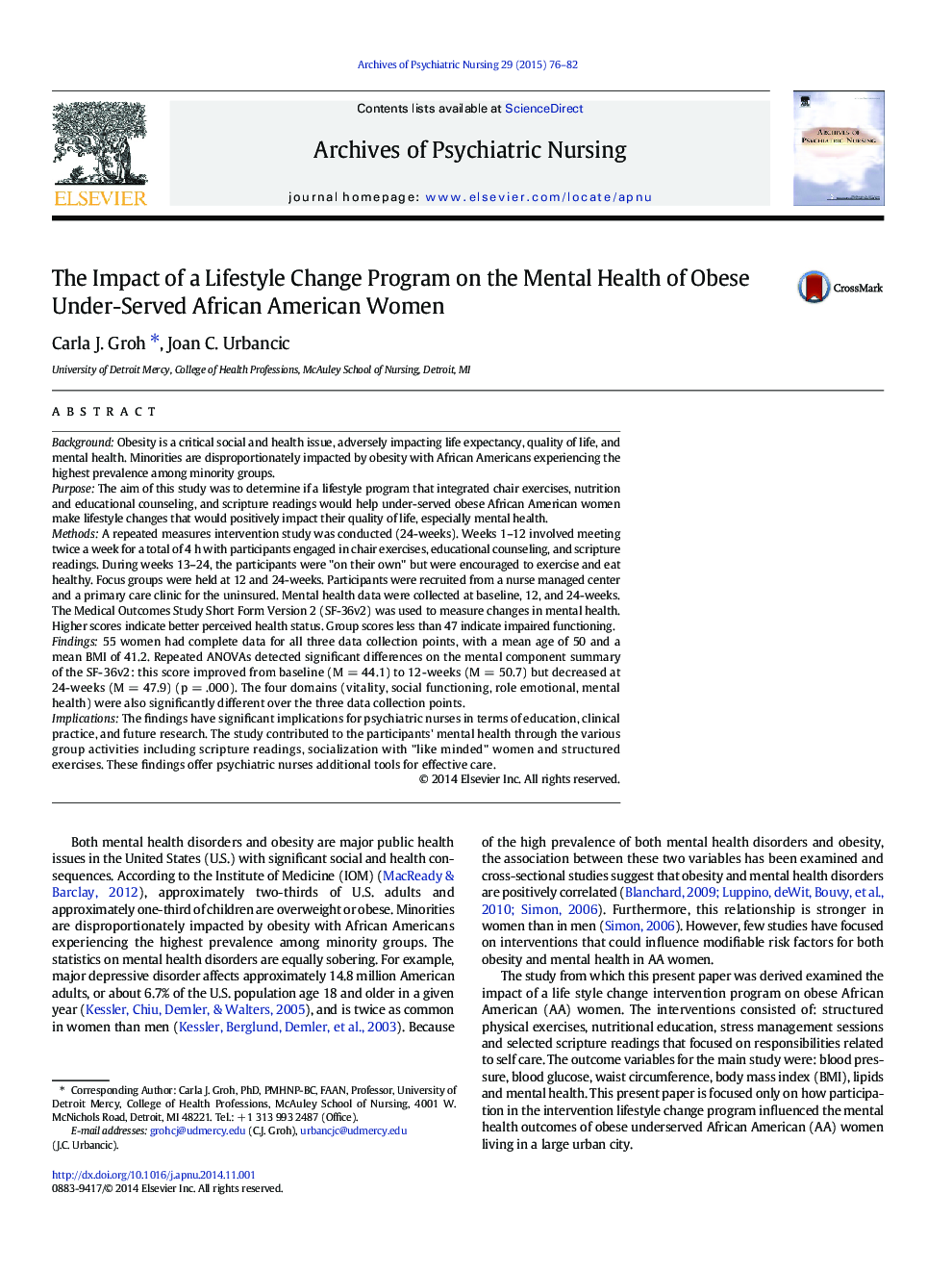| Article ID | Journal | Published Year | Pages | File Type |
|---|---|---|---|---|
| 315641 | Archives of Psychiatric Nursing | 2015 | 7 Pages |
BackgroundObesity is a critical social and health issue, adversely impacting life expectancy, quality of life, and mental health. Minorities are disproportionately impacted by obesity with African Americans experiencing the highest prevalence among minority groups.PurposeThe aim of this study was to determine if a lifestyle program that integrated chair exercises, nutrition and educational counseling, and scripture readings would help under-served obese African American women make lifestyle changes that would positively impact their quality of life, especially mental health.MethodsA repeated measures intervention study was conducted (24-weeks). Weeks 1–12 involved meeting twice a week for a total of 4 h with participants engaged in chair exercises, educational counseling, and scripture readings. During weeks 13–24, the participants were "on their own" but were encouraged to exercise and eat healthy. Focus groups were held at 12 and 24-weeks. Participants were recruited from a nurse managed center and a primary care clinic for the uninsured. Mental health data were collected at baseline, 12, and 24-weeks. The Medical Outcomes Study Short Form Version 2 (SF-36v2) was used to measure changes in mental health. Higher scores indicate better perceived health status. Group scores less than 47 indicate impaired functioning.Findings55 women had complete data for all three data collection points, with a mean age of 50 and a mean BMI of 41.2. Repeated ANOVAs detected significant differences on the mental component summary of the SF-36v2: this score improved from baseline (M = 44.1) to 12-weeks (M = 50.7) but decreased at 24-weeks (M = 47.9) (p = .000). The four domains (vitality, social functioning, role emotional, mental health) were also significantly different over the three data collection points.ImplicationsThe findings have significant implications for psychiatric nurses in terms of education, clinical practice, and future research. The study contributed to the participants' mental health through the various group activities including scripture readings, socialization with "like minded" women and structured exercises. These findings offer psychiatric nurses additional tools for effective care.
